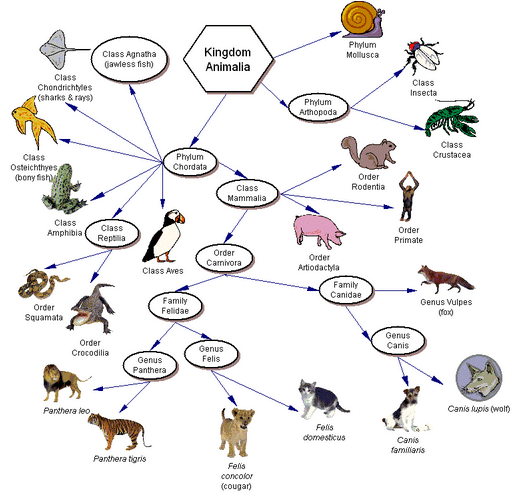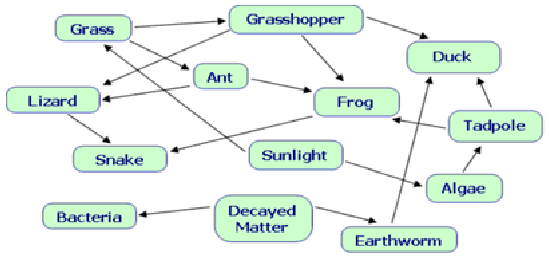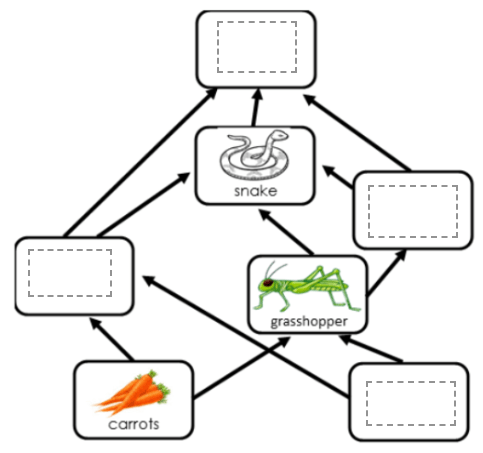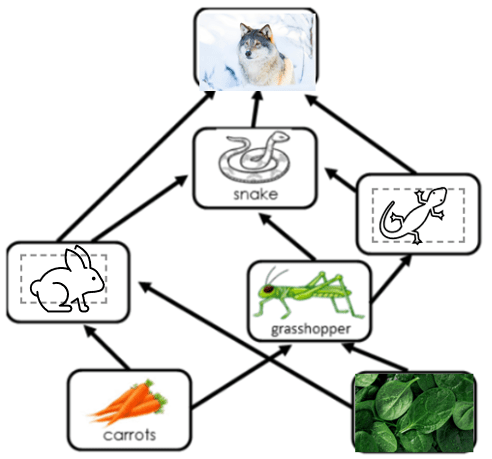_______ was the scientist that developed the system of classifying organisms by assigning them a genus and a species.
Carolus Linnaeus
Archaebacteria live in __________ environments.
Harsh
What is the name for the first level consumers?
Primary Consumers
If disease strikes the frog population, the population of owls would _________.
Decrease
Which order does Canis familias belong? 
Carnivora
Give two examples of infectious agents known as bacteria.
Bacillus & Streptococcus
Name the three domains.
Bacteria, Archaea, Eukarya
Eubacteria and Archaebacteria are ________ kingdoms.
Prokaryotic
An organism that breaks down and absorbs organic matter is in what kingdom?
Fungi
Strepsiptera beetles are eating the cockroaches that are their hosts. This is an example of _________.
Parasitism
Beneficial bacteria is involved in the process of ________ to make different types of food like yogurt, cheese, bread, and vinegar.
Fermentation
Amoebas use _______ for feeding and locomotion.
Pseudopods
A sample of pond water under a microscope contains a single-celled heterotrophic eukaryote swimming through the water. Which kingdom does this organism belong?
Grass is eaten by a deer. The deer is eaten by a wolf. This is an example of ________.
Predation
Two members of the same species fight over food. Members of different species try to take over certain nesting areas. Both are examples of _________.
Competition
What is always true for all members of the plant kingdom?
It is autotrophic
Birds will move into hollowed holes in trees for a space that is safe from predators. The tree does not move and is not affected by the relationship. What type of symbiotic relationship is described?
Commensalism
Fish in a small pond will most likely depend on what biotic factors to meet their needs?
Plants that exchange gases with the pond water
List only biotic factors.
(Anything living) Wilting Flower, Moss, Mushroom, Goldfish
Carrying Capacity
Describe the organization of an ecosystem.
How does fungi obtain energy?
It absorbs organic molecules from dead or decaying organisms.
Determine which order a chicken, a human, a worm, and a tomato belong in the food chain.

List the levels of organization from least complex to most complex.
Organism, Population, Community, Ecosystem
List only abiotic factors.
(Nonliving things) Sunlight, Temperature, Conductivity, Dissolved Oxygen
In a food web, the arrows point in just one direction because they show __________________________.
How energy is transferred to the organism that is eating.
What is the difference between a food chain and a food web?
A food web is the combination of all the food chains in an ecosystem.
Some birds make their nests on the edge of rivers despite not being able to swim or breath underwater. They feed on flying insects and lay four to five eggs. What would be evidence that the population of birds was affected by a change in the environment?
Fewer birds build nests along the river when the water level rises.
What is the predator of the frog?
Snake
Determine where a rabbit, a lizard, cabbage, and a wolf belong in the food web.
